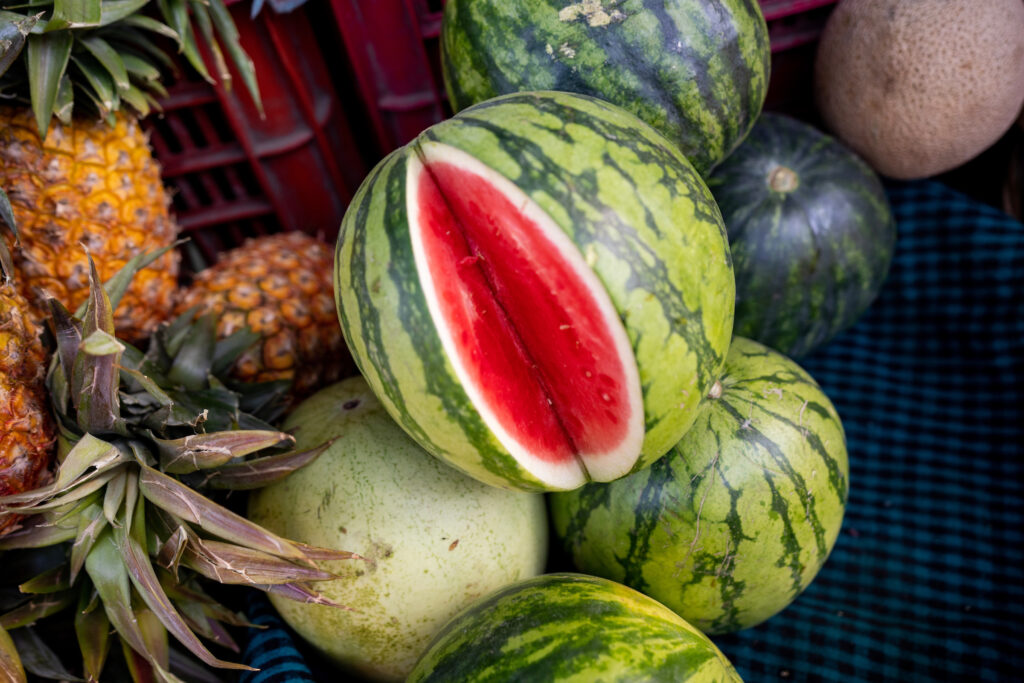Three tips to pick out a sweet watermelon
A ripe watermelon can be a mouthwatering juicy snack for your family on a hot summer day

A good, sweet watermelon is a staple healthy summer snack, so it’s important to know how to pick a ripe one at the grocery store or the local farmers market.
When it comes time to pick the perfect melon, people often make their selection based on three characteristics: size, whether it has seeds and ripeness.
The first two are easy to determine by sight and labeling, but choosing a ripe watermelon takes knowing what to look and listen for.
Sweetness is off the charts
Watermelon sweetness is measured by its brix count, which is the sugar content. On this scale, measurements of 10 are standard and measurements of 11-12 are considered very sweet.
Juan Anciso, Ph.D., a Texas A&M AgriLife Extension Service vegetable specialist, Weslaco, and associate head of the Department of Horticultural Sciences in the Texas A&M College of Agriculture and Life Sciences, has three tips that will help you pick the best watermelon.
Tip 1: Find the yellow belly, or the field spot
Other than cutting open a watermelon to see the inside, the field spot is perhaps the best indicator of the ripeness. This spot on a melon shows where it was laying on the ground while attached to the vine.
If the watermelon is ripe, the field spot should be a large, yellow patch on one side of the melon. If it is ripe, the color should be a creamy, almost butter-like yellow. The bigger the yellow belly and the creamier the color means the more time the melon spent ripening on the vine. However, if the spot is smaller or looks more white than yellow, then the melon may not be as ripe.
Tip 2: Tap the underbelly and listen for a deep sound
Another way to find a ripe watermelon is to knock the outside with your knuckles gently. A ripe melon will have a deeper sound, as opposed to an overripe one, which will have a more hollow or flat sound. A hollow or flat thud, paired with too much yellow, indicates a melon may be mealy and past its prime.
Tip 3: Look for a dull color and heavy watermelon
Although they may not be the most photogenic or the easiest to carry to your car, the best watermelons will appear dull in color and be heavier than the rest. A shiny melon indicates the insides are underripe.
Also, the best melon of the bunch will most likely be heavier than the rest. On average, a watermelon is 92% water, which is what makes them so juicy. A heavier melon likely holds more water, which will make it juicier.
This story was originally published on June 24, 2020





